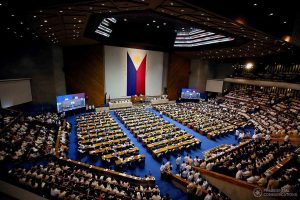By Aubrey Rose A. Inosante, Reporter
THE Department of Economy, Planning, and Development (DEPDev) wants the incoming Congress to prioritize key legislative measures that lawmakers failed to pass, including bills on national land use policy and a centralized water agency.
In a statement on Wednesday, DEPDev Secretary Arsenio M. Balisacan said he hopes for “continued momentum” for the Marcos government’s legislative agenda. A new set of congressmen and 12 of the 24-member Senate will take office in late July.
“DEPDev fully supports the passage of the Department of Water Resources bill and the proposed National Land Use Act as part of our thrust to complete the groundwork for more efficient governance and sustainable development in the years ahead,” said Mr. Balisacan, who heads the Legislative-Executive Development Advisory Council secretariat.
House Bill No. 8162 or the Land Use bill seeks to provide the government framework for land distribution among key sectors, while protecting critical areas.
House Bill No. 9663 will create a Department of Water Resources and Water Regulatory Commission to improve access to water, flood control, power production and sanitation services.
Both bills cleared the House of Representatives in 2023 but got stalled in the Senate.
Reinielle Matt M. Erece, an economist at Oikonomia Advisory and Research, Inc., expects lawmakers to pass the national land use policy to boost food security and urban development.
“On the political side, there are already some elected senators that have publicly supported this bill during their campaign and hopefully, they’ll push through with this advocacy when the new Congress starts,” he said in a Viber message.
On the other hand, he expects the bill creating a Department of Water Resources to face delays.
Congress approved seven other priority bills that are awaiting President Ferdinand R. Marcos, Jr.’s signature before it adjourned this month.
These include the Government Optimization Act, which allows the President to streamline agency operations, and a measure extending land lease terms for foreign investors to 99 from 75 years.
Also ratified were the E-Governance Act and Konektadong Pinoy Act, which both aim to build a more inclusive and affordable digital ecosystem.
The Enhanced Fiscal Regime for Large-Scale Metallic Mining Act, which proposes a five-tier windfall profit tax and lifts the ore export ban earlier imposed by the House of Representatives to boost government revenue was also ratified.
Other approved measures were the Virology Institute of the Philippines and the Accelerated and Reformed Right-of-Way Act.
Once signed, these bills will bring the number of enacted priority measures under the common legislative agenda to 40 — the highest since the administration of Fidel V. Ramos, DEPDev said.
The President had also signed into law a measure that gave additional tax incentives to certain enterprises, the Public-Private Partnership Code of the Philippines and Real Property Valuation and Assessment Reform Act.
Also enacted were the Capital Markets Efficiency Promotion Act, Trabaho Para sa Bayan Act and Tatak Pinoy Act.
Other measures that the President signed were the Academic Recovery and Accessible Learning Program Act and Enterprise-Based Education and Training Framework Act, as well as measures to boost agricultural productivity.
